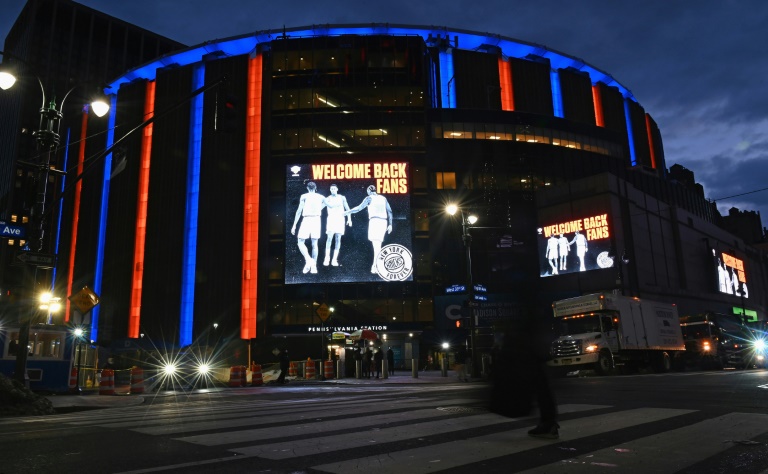The heated debate over facial recognition technology has a new flashpoint: Manhattan’s celebrated Madison Square Garden, home to the New York Knicks basketball team and countless Billy Joel concerts.
The operator of the arena, where Joe Frazier defeated Muhammad Ali in 1971’s “Fight of the Century,” is under fire for using the software to identify and eject certain lawyers from events at the venue — because they are associated with ongoing litigation involving MSG.
Local lawmakers want to halt the crackdown, which rights campaigners say is a gross abuse of a technology that is already raising fears about privacy and control from America to China.
“When the rich and powerful are free to use facial recognition to track the public it puts everyone else at risk,” said Albert Fox Cahn, executive director of STOP, a non-profit that advocates for privacy.
“Here we see a chilling example of how petty the retaliation can be,” he told AFP.
Last October, Barbara Hart and her husband were approaching their seats at “The Garden” for a Brandi Carlile concert to celebrate their wedding anniversary when security guards stopped them.
She said the guards identified her without seeing her ID card, and despite the tickets being in her husband’s name, before removing the couple from the venue.
The attorney believes the guards used technology to match her face with an image of herself taken from her company’s website.
Hart said she was targeted because her firm is engaged in a lawsuit against the venue’s parent company, MSG Entertainment, even though she is not on the case.
“It was bewildering and upsetting. Bullying with fancy tools,” the 62-year-old told AFP.
Hart is among at least four lawyers removed recently from MSG Entertainment venues because their firms are locked in legal disputes with the company.
Kerry Conlon told local media she was refused entry to Radio City Music Hall in November while trying to see dancers the Rockettes with her 9-year-old daughter.
Two other attorneys said they were denied entry to MSG to watch the Knicks and NHL team the Rangers respectively.
Billionaire businessman James Dolan’s MSG Entertainment says it has a “straightforward policy that precludes attorneys from firms pursuing active litigation against the company from attending events at our venues until that litigation has been resolved.”
New York’s attorney general, Letitia James, warned him Tuesday that the policy “may violate” state civil rights legislation.
State senators this week proposed closing a loophole in the law, which prohibits the “wrongful refusal of admission” of patrons with a valid ticket to entertainment venues.
– ‘Orwellian’ –
For rights advocates, the proposed amendment, while welcomed, doesn’t deal with the crux of the issue — growing surveillance in the age of the algorithm.
Facial recognition technology is legal in New York. It is used by police and at airports.
In 2020, the state government temporarily banned its use in schools. Campaigners like Cahn support a total ban.
He says the Madison Square Garden example shows that private business can use facial recognition “to exclude anyone whose voice you want to silence.”
MSG has deployed facial recognition technology since 2018. A New York Times report that year said the venue uses an algorithm to compare images taken by a camera to a stored database of photographs.
“The facial recognition technology system does not retain images of individuals, with the exception of those who were previously advised they are prohibited from entering our venues, or whose previous misconduct in our venues has identified them as a security risk,” an MSG Entertainment spokesperson told AFP.
The United States and the European Union are among those grappling with how to regulate the use of biometric data, facial recognition and artificial intelligence.
Supporters say facial recognition bolsters security, but critics say the imperfect technology is prone to false matches among ethnic minorities and discriminatory.
Detractors also highlight Chinese police’s use of it to track down and detain recent protesters.
MSG’s use “paints an Orwellian picture of the society we’re in right now,” Daniel Schwarz of the New York Civil Liberties Union told AFP.

 Business4 months ago
Business4 months ago
 Business5 months ago
Business5 months ago
 Events3 months ago
Events3 months ago
 People4 months ago
People4 months ago
 Events6 months ago
Events6 months ago




